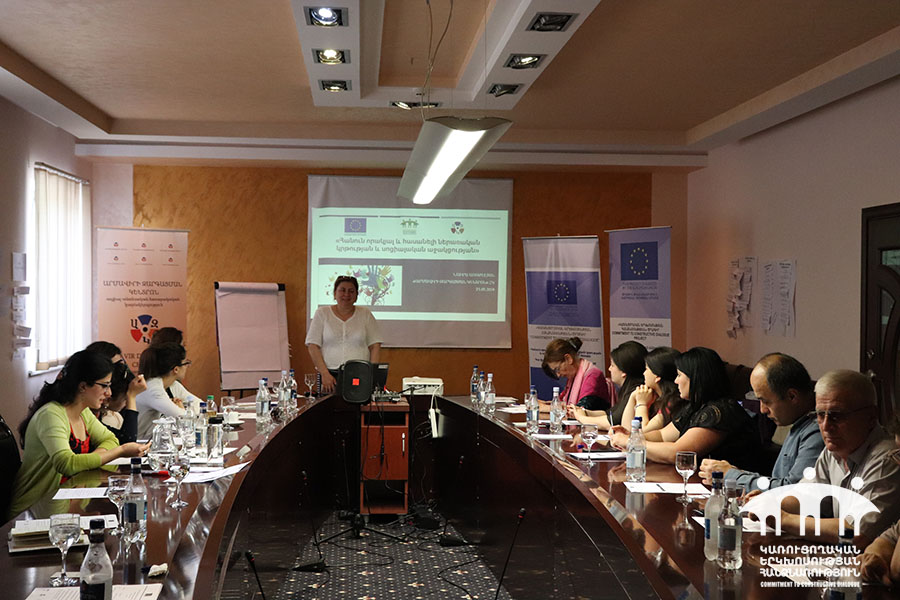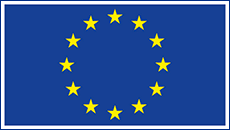
On 25 May, Aghveran hosted the closing conference of the “For Quality and Accessible Inclusive Education and Social Support” project with participation of the representatives of member organizations of the Inter-regional coalition dealing with the problems of children with disabilities “ICCD” created in the framework of the project, representatives of the partner organizations implementing the project and other stakeholders.
The Sub-grant project “For Quality and Accessible Inclusive Education and Social Support” implemented by the consortium of CSOs: “Armavir Development Center” NGO, “Martuni Women’s Community Council” NGO, “Hope-98” Vayots Dzor Development NGO and Association of Young Journalists” NGO in the scope of the EU funded “Commitment to Constructive Dialogue” project implemented by a consortium of NGOs under the leadership of Armenian Lawyers;’ Association has started on 1 June 2018..
Ms Naira Arakelyan, Executive Director of Armavir Development Center NGO presented the project goals, actions and achievements.
Within the framework of the project, inclusive education monitoring was conducted in Armavir, Gegharkunik, Kotayk and Vayots Dzor schools to identify current state of inclusive school education in the target regions, issues and possible ways of improvement, as well as study of the community-based support centers in four target regions was conducted, which identified in the proportion of allocation of regional support centers, distribution, quantity and quality of services provided by them, the needs and basic directions for improvement.
“Town Hall” format discussions aimed at the study of public opinion were held in Armavir and Martuni. As a result of the survey the issues of the quality and efficiency of social services provided by the inclusive education institutions in the regions and community-based support centers, the problems of public policy development and implementation, the peculiarities of the issue in different regions, the problem of their distribution, as well as the main directions and were identified. In total, 217 citizens participated in the discussions.
One target group has been formed in each of the regions. The groups consisted of the representatives of CSOs, active monitoring members, inclusive school teachers, parents, high school students, support staff specialists and local government bodies. Groups conducted periodic meetings, discussions and identified the sectoral issues, related barriers, key challenges to inclusive education, as well as expressed their own opinions on improving the field.
CSOs and government cooperation as well as cooperation with other state bodies have been shaped and continued to strengthen collaboration in the scope of the project, enhancing the role and participation of CSOs in public policy-making processes.
During the meeting, the relevance and significance of the topic was once again proved as a thorough discussion of issues related to inclusive education took place.
The Inter-regional coalition dealing with the problems of children with disabilities will continue to work towards solving the programmatic problems and dealing with advocacy.



